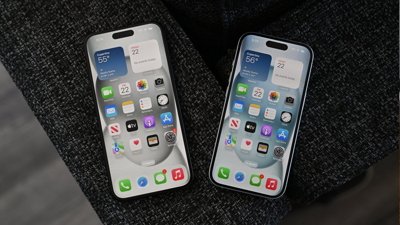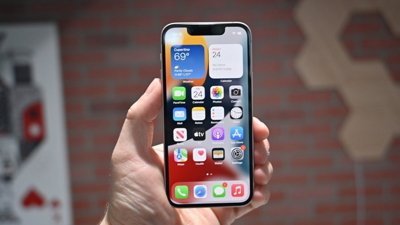Roger Ebert adds to health care debate on iPhone, Mac use
Many users with disabilities are barred from choosing cheap, off the shelf technologies by Medicare or private insurance companies who insist on only covering far more expensive devices that don't work as well.
An article in the New York Times profiled Kara Lynn, a mother who lost her voice to ALS. To help her communicate, Medicare paid for an $8,000 Windows PC running speech synthesis software.
Government rules require the PC be disabled from doing anything other than speech, in the fear that Lynn might benefit from features unrelated to her disability, such as web browsing. The Times reported that Medicare's PC vendor, DynaVox, "disables the general computing tools. After the insurer pays, customers can pay $50 to DynaVox to reactivate the full functions."
Instead of using the "clunky" PC, Lynn bought herself a $300 iPhone 3G running a $150 text to speech app. Lynn said that "it worked better and let her 'wear her voice' around her neck while snuggling with her 5-year-old son, Aiden, who has Down syndrome." Medicare won't cover devices like the iPhone however.
Asked why Medicare refused to cover cheaper, better alternatives for users, Peter Ashkenaz, a spokesman for the federal Centers for Medicare and Medicaid Services told the Times, "We would not cover the iPhones and netbooks with speech-generating software capabilities because they are useful in the absence of an illness or injury."
Instead, Medicare reimburses specialty companies who bill it as much as a 2,000% premium on the hardware they provide. "Prentke Romich, for example, charges $250 for a Bluetooth wireless adapter similar to those that cost $20 in stores," the Times reported.
Death Panel Technology
Responding to the article, Ebert wrote a letter to the editor noting that he was similarly offered an $8,000 solution after having lost his ability to speak.
"After trying an $8,000 custom device with little computing power and a small, dim screen, I tried the built-in speech software on my MacBook and found it much more practical," he wrote. "It will read anything aloud, including what I define on a Web page or in an e-mail message. Several voices are built into the computer, and others are downloadable at moderate prices.
"I combine talking and Web surfing — for example, sharing a news headline with my wife," he said. "It’s stupid of insurance companies to insist on an inferior device costing 10 times as much."
The Obama administration is working to enact health care reform efforts to address outdated spending rules and investigate how Medicare can use more efficient and modern technologies. Critics suggest that any cuts to the status quo of Medicare spending, which would impact a variety of connected companies like DynaVox and Prentke Romich, might instead result in a government euthanasia program that uses death panels to slaughter old people.
Others fear that Obama's plans to reform health care will result in Medicare being taken over by the government, unaware that Medicare itself is a single payer, government-run healthcare program and has been since 1965.
Cost savings involved in using low cost, modern technology available in off the shelf devices is a significant component of the Obama's health care plan, which includes a provision to "create an independent Commission, made up of doctors and medical experts, to make recommendations to Congress each year on how to promote greater efficiency and higher quality in Medicare. The Commission will not be authorized to propose or implement Medicare changes that ration care or affect benefits, eligibility or beneficiary access to care."
 Prince McLean
Prince McLean










 Malcolm Owen
Malcolm Owen
 Christine McKee
Christine McKee

 Amber Neely
Amber Neely

 William Gallagher
William Gallagher









